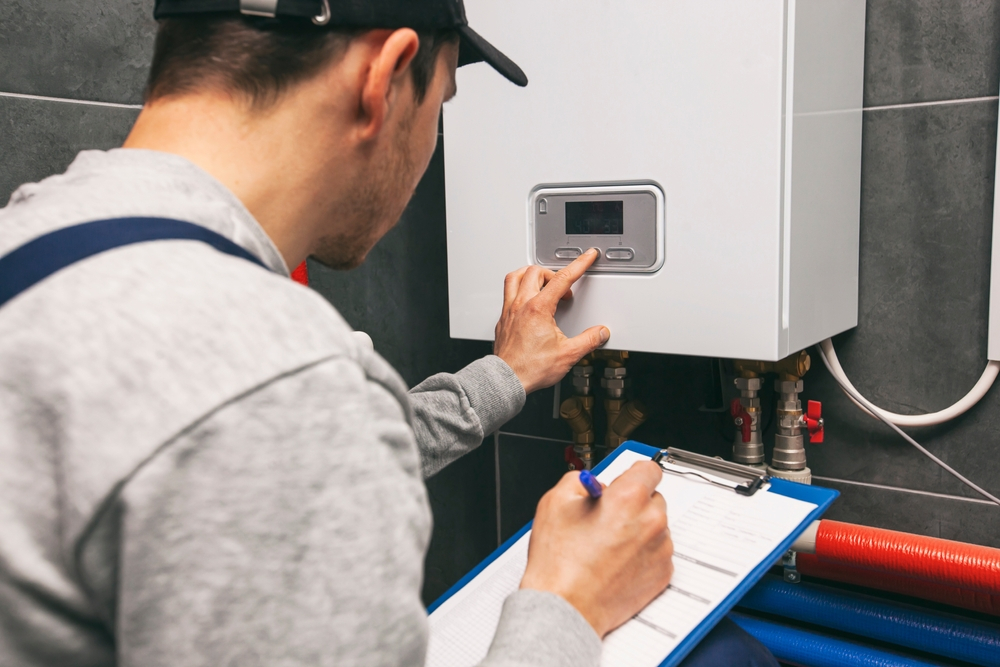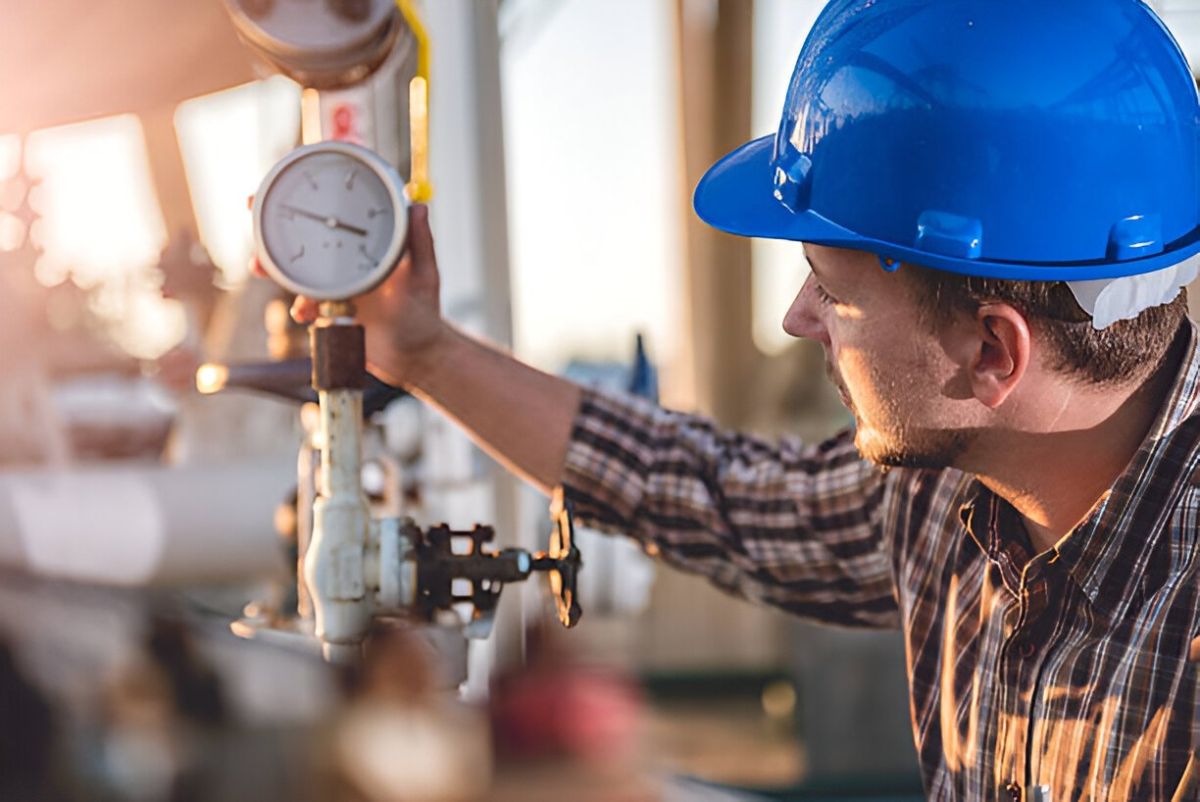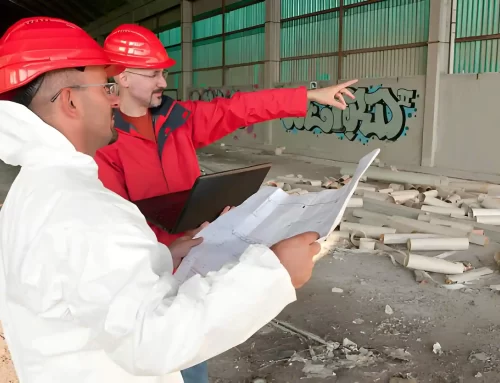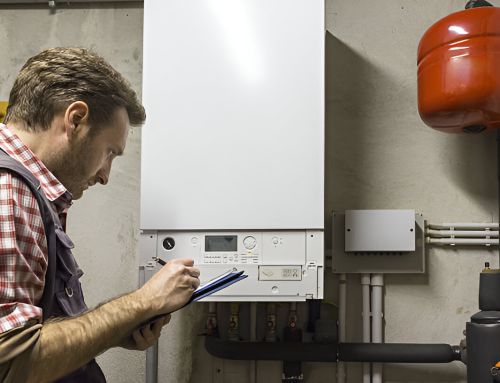
Where the property is located and its type both have a strong impact on the final gas safety certificate cost. Typically, prices range from £50 to £250. While this investment might seem considerable, it serves to guarantee compliance with safety regulations and can promote tenant confidence. Furthermore, it can lead to possible savings on insurance premiums. Understanding these aspects is essential for landlords and property managers as they alleviate the difficulties of gas safety compliance. What are the hidden benefits?
Key Takeaways
- Gas Safety Certificate costs range from £50 to £250, depending on property type and the difficulty of installation.
- Investing in gas safety certificates can enhance property value and attract more reliable tenants.
- Compared to other safety checks, gas safety certificates are relatively affordable, averaging £70 to £120 annually.
- Non-compliance with gas safety requirements can lead to increased insurance premiums or policy voidance, impacting financial stability.
Gas Safety Certificate Cost / An Overview
Having a gas safety certificate provides assurance that your property’s gas systems comply with legal safety standards. The inspection usually includes checks on boilers, flues, and gas fires to confirm they are working safely and efficiently. By understanding exactly what the certificate involves, landlords and homeowners can better appreciate its value and why certain costs are attached to it.
What the Certificate Actually Covers
Understanding the scope of a Gas Safety Certificate is essential for both landlords and tenants. This certificate is not just a formality; it guarantees the safety and functionality of gas appliances within a property.
The coverage includes critical aspects that protect occupants and promote compliance with regulations.
- Inspection of gas appliances for safe operation
- Checking gas pipework for leaks and integrity
- Verification of flue systems for proper ventilation
- Confirming that carbon monoxide alarms are functional
What Determines Gas Safety Certificate Cost in 2025?
Property type will play a major role in determining gas safety certificate costs in 2025. Typical price ranges are expected to reflect the complexity and size of the property being evaluated.
Understanding these differences is essential for homeowners and landlords budgeting for compliance.
Typical Price Ranges for Different Property Types
While costs can vary, typical price ranges for gas safety certificates in 2025 largely depend on the type of property being assessed.
Property owners seeking transparency and compliance can expect the following ranges:
- Residential homes: £50 to £100, reflecting the standard assessment for domestic appliances.
- Commercial properties: £100 to £200, considering the complexity and variety of systems involved.
- Landlord certificates (multiple units): £75 to £150 per unit, addressing safety for tenants in shared accommodations.
- New builds: £100 to £250, factoring in modern installations and regulatory checks.
Understanding these price ranges empowers property owners to make informed decisions while ensuring safety and compliance.

Key Factors That Influence Gas Safety Certificate Cost
The cost of securing a gas safety certificate can change widely depending on circumstances. Recognising these factors helps property owners balance safety with affordability.
| Factor | Description |
|---|---|
| Type | The type of property often dictates how extensive the inspection must be, altering the final cost. |
| Location | Regional pricing structures and availability of certified gas engineers can influence fees. |
| Condition of Installations | Older or poorly maintained appliances may necessitate additional checks, increasing costs. |
Why Spending on a Gas Safety Certificate Pays Off
This certification serves as an essential assurance that gas appliances and installations are functioning correctly, ultimately protecting lives and property. The investment in a gas safety certificate transcends mere compliance; it encourages peace of mind for landlords and tenants alike.
- Protection against gas leaks: Reduces the risk of hazardous incidents.
- Increased property value: A certified property appeals to potential buyers or renters.
- Lower insurance premiums: Many insurers offer discounts for compliant properties.
- Trust and credibility: Demonstrates a commitment to safety and responsibility.
In a world where freedom thrives on safety, paying for a gas safety certificate is not just a responsibility but a wise investment in well-being and security.
How to Get the Best Value on Gas Safety Certificate Cost
When seeking the best value for a gas safety certificate, landlords and property owners should consider a few key factors to guarantee they are making a sound investment.
First, researching multiple certified gas engineers can help identify competitive pricing without sacrificing quality. Property owners should verify that the chosen engineer holds the necessary qualifications and experience to avoid pitfalls later on. Additionally, bundling services, such as gas safety checks with regular maintenance, can yield significant savings.
Next, understanding the specific requirements for gas safety certificates in their region can help avoid unnecessary costs associated with non-compliance.
Finally, seeking recommendations from trusted sources can lead to reliable service providers, ensuring both quality and value. By prioritising these considerations, property owners can secure a gas safety certificate that aligns with their budget while maintaining safety and compliance standards.
Gas Safety Certificate Cost Across the UK
Gas safety certificate costs can vary considerably across the UK, influenced by factors such as location, service provider, and property type. In urban areas, where demand for safety checks is higher, prices may soar compared to rural locations.
Additionally, experienced gas engineers often charge more for their expertise, impacting the final cost.
- Location: Urban centres typically see higher costs than rural regions.
- Service Provider: Established companies often charge premium rates compared to independent contractors.
- Property Type: Larger properties or those with more complex systems might incur higher fees.
- Market Demand: Seasonal demand fluctuations can also affect pricing, especially in colder months.
Understanding these elements can empower property owners to make informed decisions while seeking to guarantee safety and compliance without breaking the bank.
Gas Safety Certificate Cost vs. Other Property Safety Checks
Many property owners often find themselves comparing the costs of a gas safety certificate with other essential safety checks, such as electrical inspections and fire risk assessments. Understanding these costs can help in making informed decisions that prioritise safety without sacrificing financial freedom.
| Safety Check | Average Cost (£) | Frequency of Check |
|---|---|---|
| Gas Safety Certificate | 70 to 120 | Annually |
| Electrical Inspection | 150 to 300 | Every 5 years |
| Fire Risk Assessment | 200 to 400 | Every 12 months |
While gas safety is fundamental, other safety checks also carry significant costs. Balancing these expenses is important for property owners aiming to maintain compliance while maximising the safety of their environments. Ultimately, the investment in safety is a significant aspect of property ownership, reflecting a commitment to both freedom and responsibility.
The Impact of Property Size on Gas Safety Certificate Cost
Property size plays a significant role in determining the cost of obtaining a gas safety certificate. Larger properties typically require more extensive checks, which can lead to increased costs. The complexity of the gas systems in bigger spaces also necessitates thorough inspections, impacting the final price.
- More gas appliances may need inspection.
- Increased time for thorough evaluations.
- Potential for additional safety measures in larger spaces.
- Variability in costs depending on regional service rates.
As property size increases, so does the potential for hidden risks, making it integral to guarantee compliance without compromise.
Landlords and property owners seeking freedom in their investments must consider these factors to avoid unforeseen expenses. Embracing a proactive approach to gas safety can guarantee both legal compliance and peace of mind, empowering owners to focus on their broader aspirations.
Gas Safety Certificate Cost and Its Role in Tenant Confidence
While the cost of obtaining a gas safety certificate may vary, its impact on tenant confidence is undeniable. A well-documented gas safety certificate assures tenants that their living environment is safe and compliant with regulations. This assurance fosters a sense of security, allowing tenants to focus on enjoying their homes without the looming fear of gas-related dangers.
Investing in a gas safety certificate not only demonstrates a landlord’s commitment to safety but also enhances the overall reputation of the property. Tenants are more likely to feel empowered in their decisions when they know their home meets safety standards.
Moreover, transparency regarding safety certifications can lead to stronger tenant relationships, as individuals appreciate landlords who prioritise their well-being.
Ultimately, the cost of a gas safety certificate can be viewed as an investment in tenant peace of mind, fostering a harmonious living environment, and potentially reducing turnover rates.

Why Gas Safety Certificate Cost Shouldn’t Be the Only Factor You Consider
Although the cost of a gas safety certificate is an important consideration, it should not be the sole factor in decision-making for landlords.
Relying solely on price can lead to overlooking critical aspects that impact overall property management and tenant safety.
Landlords should consider the following factors:
- Quality of Service: A lower-cost certificate may come from less experienced professionals, risking thoroughness.
- Regulatory Compliance: Understanding legal requirements guarantees landlords avoid fines and penalties.
- Long-term Implications: Investing in quality inspections can prevent costly repairs and liability issues down the line.
- Tenant Satisfaction: Prioritising safety and quality encourages a sense of security and trust, enhancing tenant retention.
The Relationship Between Gas Safety Certificate Cost and Insurance Requirements
Often, landlords overlook the significant connection between gas safety certificate costs and insurance requirements. The expense of obtaining a gas safety certificate is not merely a regulatory formality; it directly impacts insurance coverage and premiums.
Many insurance policies stipulate that landlords must maintain up-to-date gas safety certificates to guarantee full protection against liability claims. Failure to comply may result in policy voidance or increased premiums, which can erode the financial freedom landlords seek.
Investing in a gas safety certificate not only fulfils legal obligations but also enhances the safety of tenants, ultimately safeguarding the landlord’s assets. This proactive approach can lead to lower insurance costs in the long run.
Consequently, understanding the interplay between gas safety certification and insurance is essential for landlords aiming to optimise their financial strategies while maintaining compliance and safety.
Gas Safety Certificate Cost: Practical Advice for Property Managers
Understanding the costs associated with obtaining a gas safety certificate is primary for property managers who aim to guarantee compliance and safeguard their investments.
Being well-informed can help them navigate the complexities of this requirement, ensuring both safety and financial prudence.
- Regular Inspections: Schedule routine checks to identify potential issues early, minimising costly repairs.
- Certified Professionals: Choose reputable engineers for certification to avoid fines and ensure compliance.
- Transparent Pricing: Request detailed quotes to understand what is included, and avoid unexpected charges.
- Long-term Budgeting: Factor in the costs of annual inspections in financial planning to maintain cash flow stability.
Frequently asked questions.
Gas safety certificates typically require renewal annually. Maintaining this schedule promotes peace of mind, allowing property owners to embrace their independence while prioritising safety and legal obligations.
Without a gas safety certificate, individuals risk legal penalties, increased insurance costs, and potential liability for accidents. Furthermore, they compromise safety, endangering themselves and others, while facing difficulties in property transactions or rentals.
One cannot perform their own gas safety check legally. Only qualified Gas Safe registered professionals are authorised to conduct these checks, ensuring safety and compliance with regulations, protecting both the individual and their property from potential hazards.
Gas safety certificates are not transferable between landlords. Each landlord must obtain a new certificate specific to their property and tenancy, ensuring compliance with safety regulations and protecting both tenants and the landlord’s legal responsibilities.
A qualified gas safety engineer should hold a valid Gas Safe Register certification, demonstrating competency in gas safety regulations. Additional training in relevant areas, such as appliance servicing and installation, further guarantees that compliance and safety standards are met.
Conclusion
In summary, while the Gas Safety Certificate cost may appear significant, it is an essential investment for property managers and landlords. By understanding the various factors influencing pricing and the long-term savings associated with compliance, individuals can make informed decisions. Prioritising safety not only fosters tenant confidence but also safeguards against potential legal issues and costly repairs. Ultimately, maintaining up-to-date gas safety records is vital for responsible property management and financial prudence.
About the Author: Atia Amin
Related Posts
Get Social
Recent Posts
- Electrical Diagnostic London: How Professional Testing Keeps Your Property Safe and Compliant
- Asbestos Management Survey London: Update Your Property Records
- Gas Safety Certificate London: Why Regular Checks Save Money Long-Term
- FRA London Explained: How a Professional Fire Risk Assessment Keeps You Compliant and Safe
- When a New Tenancy Requires Your EICR Certificate London Renewal













